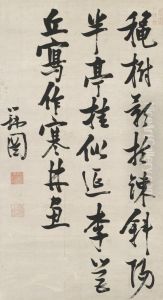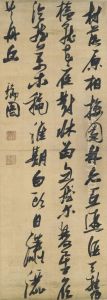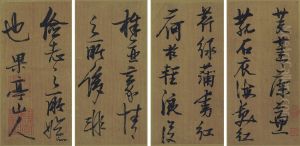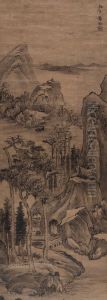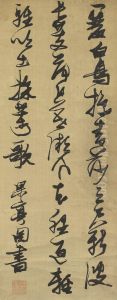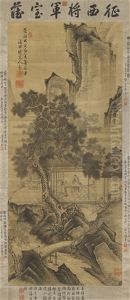Zhang Ruitu Paintings
Zhang Ruitu was a Chinese scholar, artist, calligrapher, and poet during the Ming Dynasty. Born in 1570 in the Jiangsu province, he was known for his accomplishments in the field of Chinese ink painting and calligraphy. Zhang Ruitu was part of the literati, or scholarly class, who pursued the arts as part of their Confucian cultivation and expression of personal values and taste.
During his lifetime, Zhang Ruitu was recognized for his mastery of the 'Four Gentlemen' (plum, orchid, bamboo, and chrysanthemum) in Chinese painting, which were traditional subjects that symbolized noble attributes and moral integrity. He was also skilled in painting landscapes and figures, displaying a refined technique and a personal style that was influenced by earlier masters yet unique in its own right.
Zhang Ruitu's calligraphy was equally esteemed, characterized by a fluid and vigorous style that embodied the principles of balance and harmony. He often inscribed poetry on his paintings, enhancing the literati aesthetic that sought to combine visual art, poetry, and calligraphy into a single, unified work of art.
Despite the political turmoil of the late Ming period, Zhang Ruitu maintained a career as a government official. However, like many literati of his time, he faced challenges due to the dynastic decline and the eventual fall of the Ming Dynasty in 1644, which occurred shortly after his death in 1641.
Zhang Ruitu's works were highly valued by his contemporaries and have been collected and revered by generations of Chinese art connoisseurs. While not as widely known as some of his peers, Zhang's contributions to the arts of the Ming Dynasty continue to be appreciated by art historians and collectors today.


